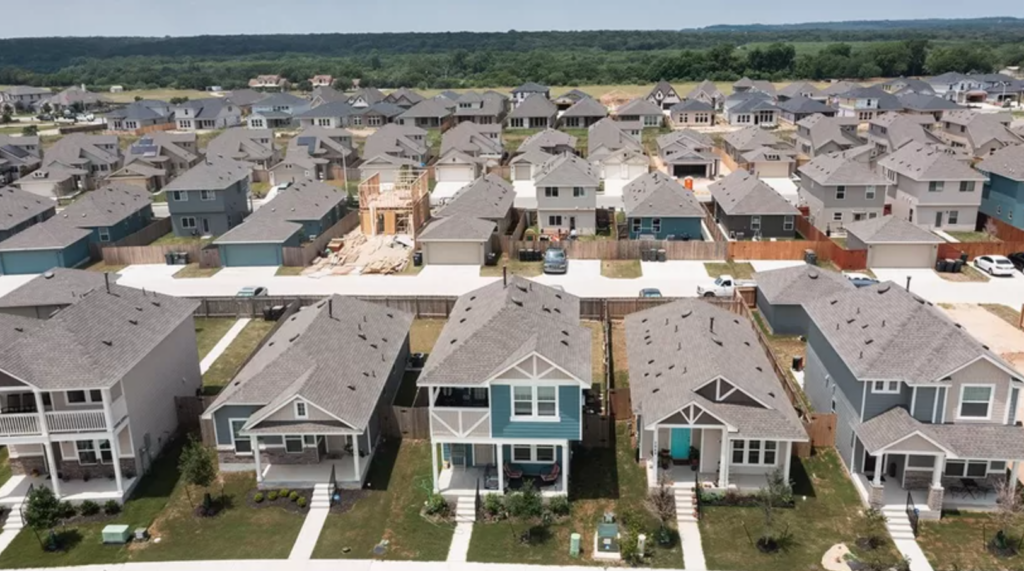By Aarthi Swaminathan

I don’t think that home sales are going to grind to a complete halt. They’ll just slow. People will still be able to sell homes, but it may take you just a little bit longer than what it’s been.
– Len Kiefer, deputy chief economist at Freddie Mac
The U.S. housing sector is in the midst of the biggest slowdown in over a decade, one economist says. But don’t expect prices to fall back down to earth just yet.
“The U.S. housing market is at the beginning stages of the most significant contraction in activity since 2006,’” Len Kiefer, deputy chief economist at Freddie Mac, tweeted.
“It hasn’t shown up in many data series yet, but mortgage applications are pointing to a large decline over summer,” he explained.” He said home-purchase mortgage applications are down 40% from their most recent peak in 2021.
Purchases and refinance applications are in fact down to the lowest level in 22 years.
Mortgage applications as a data point “gives you a sense of where the market might be headed,” Kiefer said in an interview with MarketWatch, “because that’s the early stages of when people are looking to buy a home. And if the volume of applications falls, that tends to indicate that in a month, month and a half, mortgage originations of home closings will also decline.”
Kiefer expects home sales to henceforth “slow quite a bit over the summer.”
Meanwhile, Freddie Mac data released on Thursday morning revealed that mortgage rates have risen, on the back of rising interest rates and inflation.
To be clear, “I don’t think that home sales are going to grind to a complete halt,” Kiefer stressed. “They’ll just slow. People will still be able to sell homes, but it may take you just a little bit longer than what it’s been.”
Would home prices fall as a result of a ‘contraction’?
While some may jump to the conclusion that weaker data represents a possible fall in home prices, experts caution otherwise.
“Does this mean that house prices are going to crash? I don’t think so,” Kiefer said.
Freddie Mac’s research shows that when interest rates go up, while home sales and mortgage originations go up, house prices won’t necessarily fall or rise. “They tend to be stickier,” Kiefer said.
“And while the rate of growth tends to slow, they don’t tend to fall,” he added.
